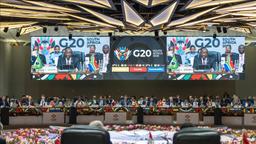
Burcu Aydın, PhD
Director of Economic and Structural Policies CenterRelated Publication Files

Policy Note / Burcu Aydın Özüdoğru
This policy note examines the economic impact of the two earthquakes that occurred on February 6, 2023, in Pazarcık and Elbistan districts of Kahramanmaraş, of magnitude (Mw) 7.7 and 7.6, causing a great number of fatalities, destruction and damage in 11 provinces in the region, and recommends structural and economic recovery policies. The paper shows that the death toll and the loss of capital in the earthquake region, and the cost of re-construction and rehabilitation will have a significant and long-term negative impact on the Turkish economy, especially on growth, employment, inflation, fiscal and financial accounts, wealth, and poverty. In this paper, we use the preliminary data available a few weeks after the earthquake, and we show that the cost of the recovery of the region will reach approximately US$150 billion throughout a 5-year period, and this cost will adversely affect Turkish public finance and financial risk indicators. In 2023, we expect economic growth to be 1.2 percentage points lower than the baseline scenario. The risks on growth may vary in a wide range depending on the post-earthquake economic policies and financial conditions, as well as the speed of the reconstruction process. In this paper, we propose post-earthquake economic recovery policies, taking into account the economic impact of the earthquake, sustainable development needs of the nation, and international best practices. These policies aim to carry out the post-earthquake recovery program in the most effective way, and make Türkiye, and in particular the Marmara region, sheltered against natural disasters. In order to enhance the efficiency and the effectiveness of the program, we recommend cooperation with international financial institutions.
You may read policy note from here.
Click here for The Economist news about the note.




